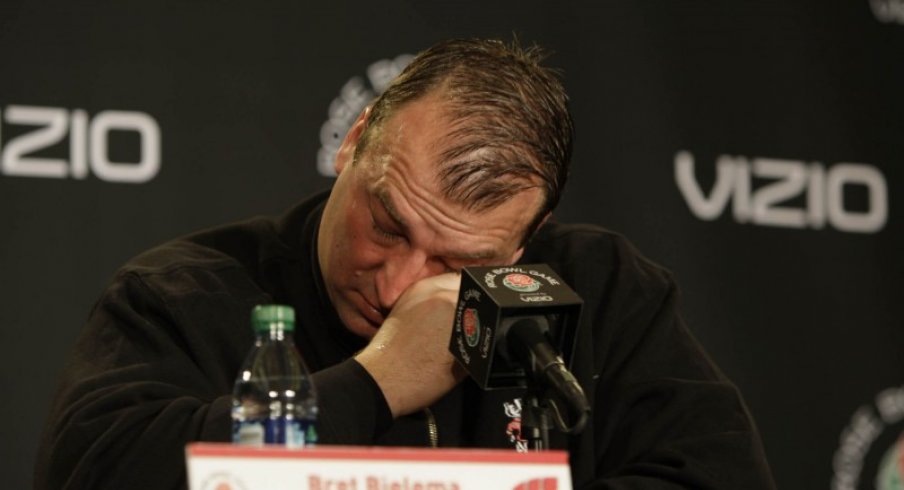Ohio State blows out Indiana, 38-15. Now, it's time to do the same to That Team Up North.
Last summer, Nick Saban and Bret Beliema made waves when they complained about the influx of no-huddle offenses in college football. It was a player safety issue, they crooned. These offenses needed to be slowed down, they said.
Well, the NCAA is eyeing a rule that would put the brakes on high-speed offenses:
The committee also recommended a rules change that will allow defensive units to substitute within the first 10 seconds of the 40-second play clock, with the exception of the final two minutes of each half, starting with the 2014 season.
“This rules change is being made to enhance student-athlete safety by guaranteeing a small window for both teams to substitute,” said Calhoun. “As the average number of plays per game has increased, this issue has been discussed with greater frequency by the committee in recent years and we felt like it was time to act in the interests of protecting our student-athletes.”
Under this rule proposal, the offense will not be allowed to snap the ball until the play clock reaches 29 seconds or less. If the offense snaps the ball before the play clock reaches 29 seconds, a 5-yard, delay-of-game penalty will be assessed. Under current rules, defensive players are not guaranteed an opportunity to substitute unless the offense substitutes first. This part of the rule will remain in place in scenarios where the play clock starts at 25 seconds.
The Rules Committee says research suggests offenses rarely snap the ball before the 29-second mark in the playclock anyway. Yet, other research also suggests there isn't enough evidence to suggest hurry-up offenses lead to an increase in injuries.
Troy Calhoun, Air Force's coach, and Todd Berry, the University of Louisiana-Monore, are the only FBS coaches on the NCAA's rule committee.
At least one coach thinks this thing is dead on arrival:
One coach I texted about the proposed 10-second rule replied: "Is that real? I thought it was a joke. No way that passes."
— Stewart Mandel (@slmandel) February 12, 2014
